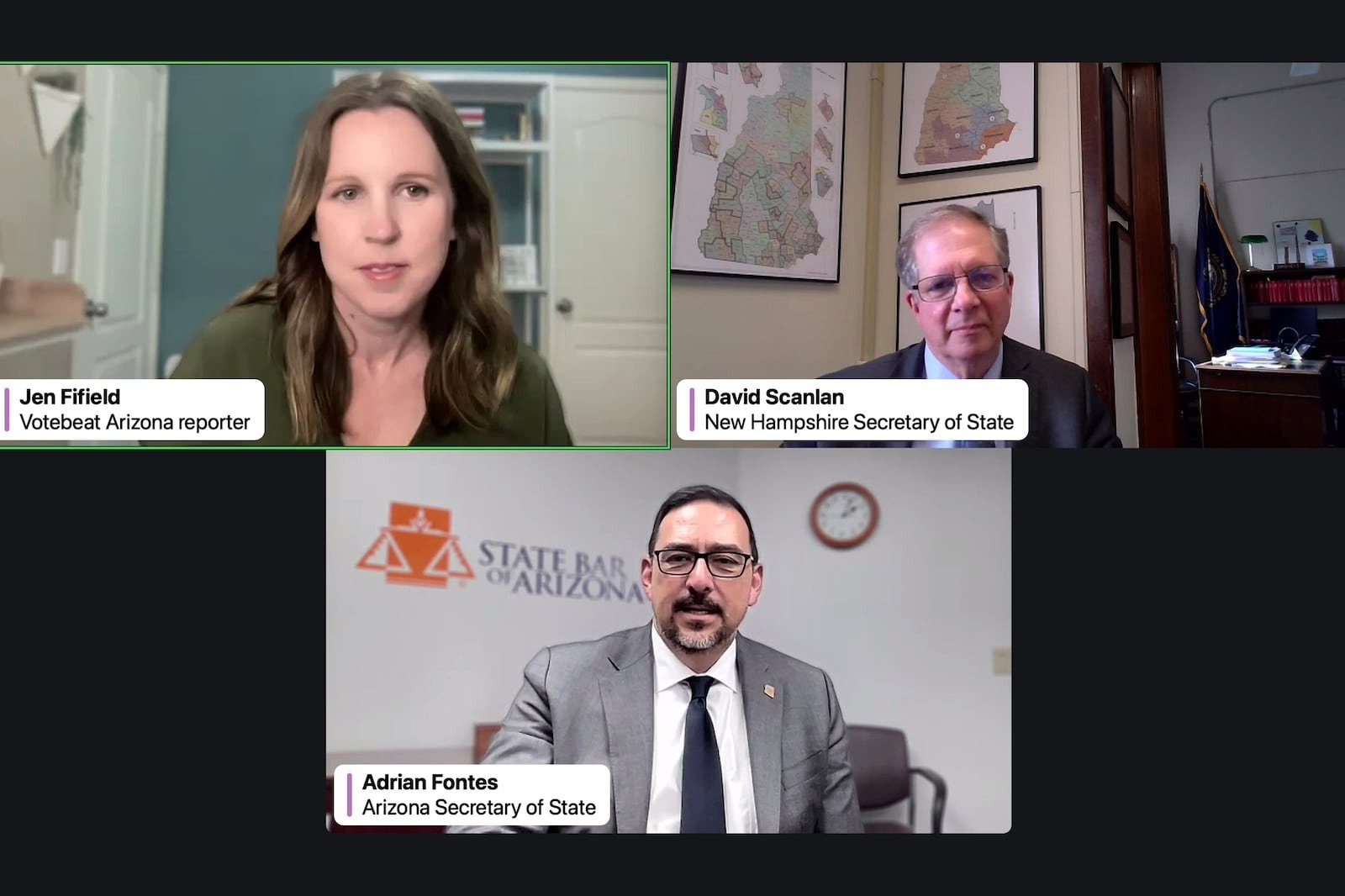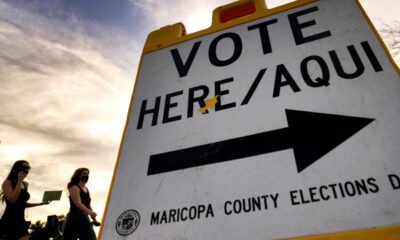Adrian Fontes
Two Secretaries of State Reveal Key Insights on Proof-of-Citizenship Laws for Voting

This week, Votebeat facilitated a discussion between Arizona Secretary of State Adrian Fontes and New Hampshire Secretary of State David Scanlan, focusing on the contentious issue of voter documentary proof of citizenship requirements.
Though representing states with differing political landscapes—Fontes as a Democrat and Scanlan as a Republican—they found common ground on the implications of these laws for voter accessibility and integrity.
Moderated by Votebeat Arizona reporter Jen Fifield, the conversation addressed the evolving national debate surrounding these laws. Arizona has mandated proof of citizenship since 2004, while New Hampshire recently implemented a similar requirement.
More states are considering legislative measures to further restrict voter registration. The SAVE Act, under Congressional review, aims for nationwide citizenship proof, bolstered by President Trump’s previous executive order, now halted by federal courts.
Fontes remains skeptical about the necessity of such laws, attributing their rise to political narratives devoid of factual basis. He noted that instances of noncitizens voting are incredibly rare, questioning the rationale behind overhauling voting procedures to address an insignificant problem.
Scanlan agrees noncitizen voting is infrequent but highlights the need for establishing a balance between access to voting and ensuring election integrity. He pointed out that complicated registration processes could lead to unintentional voter suppression.
Both officials expressed concerns over how these laws could burden voters. Scanlan shared that during local elections, some individuals left after failing to provide documentation, underscoring the need for effective voter education and assistance in acquiring necessary paperwork.
Fontes took a firmer stance, advising other states against adopting such laws. He acknowledged voter apprehension regarding the dilution of their power by noncitizens but emphasized a lack of evidence supporting these fears.
Both leaders cautioned state officials looking to implement these requirements: significant investment is necessary for outreach and training poll workers effectively. Fontes acknowledged the potential challenges, stating, “We’re tinkering around with a fundamental right here.”
While the dialogue did not yield straightforward solutions, it emphasized the complexities and consequences these laws may impose on voters. Fontes concluded with a warning against major changes for minor issues, asserting that effective governance depends on measured responses to real concerns.
As legislative discussions continue, the experiences from Arizona and New Hampshire illustrate the importance of context and careful implementation in maintaining the trust of voters.


















